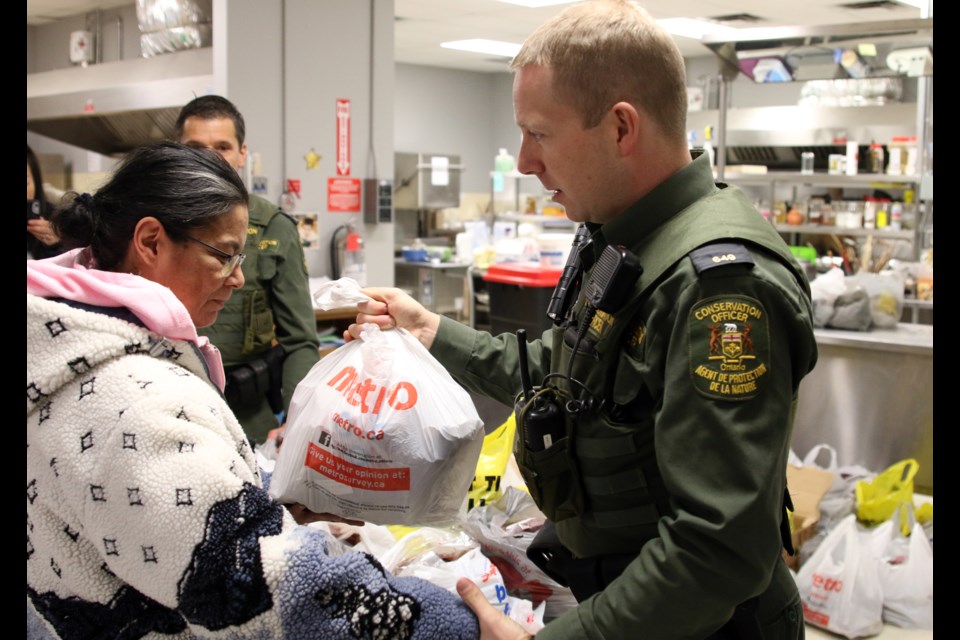THUNDER BAY - Moose meat is a dietary staple for some people living in the Northwest, even though it’s not always the easiest to come by. But for people who enjoy it, the taste is definitely worth all the effort.
“I marinate it for about a day or so with some spices,” said Doug Lawrence. “But people say searing it is pretty good, too.”
“You can tell the difference,” added Kyle Tienhaara. “It’s natural. It’s from the bush.”
For those who are unable to venture into the bush to hunt it themselves, or may not have any luck, the Ministry of Natural Resources and Forestry, along with the Regional Food Distribution Association, have been partnering together for the last 10 years to ensure as many people as possible can get a taste of this natural meat, while also keeping animals unlawfully harvested from going to waste.
On Wednesday, more than 2,000 pounds of moose and deer meat were distributed to more than 100 people at the RFDA office. Each person received approximately 15 pounds of meat.
“It’s not often you get an opportunity to get wild game,” said Volker Kromm, executive director of the RFDA. “A lot of these individuals may have been hunters at one point and may no longer hunt. So this is an opportunity to go back to traditional foods.”
Every year people line up as early as 7 a.m. to receive moose and deer meat. The meat is available to anyone who is lucky enough to be placed on an advanced list.
“They really look forward to this and they start calling us in January to make sure they are on the list for next year,” Kromm said.
According to Davis Viehbeck, a conservation officer with the Ministry of Natural Resources and Forestry Thunder Bay Enforcement Unit, this year the meat came from between five and six moose and three white-tailed deer that were unlawfully harvested.
“A number of the individuals that we are seizing these animals from are legitimate sportsmen who may have made an error in judgement,” Viehbeck said. “One of their primary concerns and one of our primary concerns is this meat isn’t wasted and goes to people who need protein in their diet.”
Viehbeck added this year was fairly average in terms of the number of unlawfully harvested animals in the region. There have been instances of animals found abandoned, and if the meat cannot be saved, it does go to waste.
“Food safety is our utmost concern,” he said. “When we receive a report of an animal that’s been shot and abandoned, we don’t take any chances with human health in terms of food safety. If the animal can’t be salvaged, unfortunately those animals are wasted, which is obviously one of the most aggravating offenses we come across as conservation officers when a hunter mistakenly shoots an animal and makes the decision to leave that animal in the bush to waste.”
For Tienhaara and Lawrence, being able to get moose meat at the RFDA is a huge help, because sometimes going out into the bush to hunt is not always an option for some people.
“It’s pretty important for me,” Tienhaara said. “This is the only time throughout the year I can obtain this meat. You can’t buy it from a store, so I enjoy this a lot.”
“I tend to get out and do a little bit of hunting in the fall,” Lawrence added. “But the price is out of the world to go out there and get your own meat sometimes. And the wildlife is very scarce these days. It’s very nice these people can provide us with this nice moose meat. It’s very well taken care of and well butchered.”
